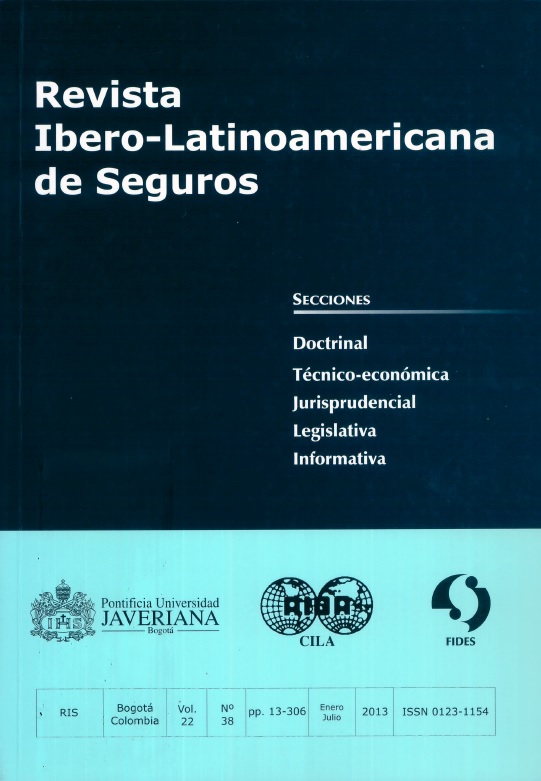Abstract
Este artículo, que fue escrito como trabajo de grado de la Especialización en Derechode Seguros de la Pontificia Universidad Javeriana, pretende analizar el amparo deinfidelidad de empleados de la póliza de seguro global bancario, en las modalidadesque normalmente se otorgan en el mercado colombiano (clausulados DHP 84, KFA81, NMA 2626 y DHP 73), a la luz de las normas y de la jurisprudencia relativa a lascláusulas abusivas. En particular, se analiza el requisito de demostrar que los empleadosinvolucrados en el acto de infidelidad obtuvieron una ganancia financiera indebidacuando se trata de pérdidas sufridas como consecuencia de operaciones comercialesde trading o de crédito a la luz de las normas de protección al consumidor, para concluirque dicha cláusula no reúne las condiciones para ser calificada como abusiva enforma general.This journal is registered under a Creative Commons Attribution 4.0 International Public License. Thus, this work may be reproduced, distributed, and publicly shared in digital format, as long as the names of the authors and Pontificia Universidad Javeriana are acknowledged. Others are allowed to quote, adapt, transform, auto-archive, republish, and create based on this material, for any purpose (even commercial ones), provided the authorship is duly acknowledged, a link to the original work is provided, and it is specified if changes have been made. Pontificia Universidad Javeriana does not hold the rights of published works and the authors are solely responsible for the contents of their works; they keep the moral, intellectual, privacy, and publicity rights.
Approving the intervention of the work (review, copy-editing, translation, layout) and the following outreach, are granted through an use license and not through an assignment of rights. This means the journal and Pontificia Universidad Javeriana cannot be held responsible for any ethical malpractice by the authors. As a consequence of the protection granted by the use license, the journal is not required to publish recantations or modify information already published, unless the errata stems from the editorial management process. Publishing contents in this journal does not generate royalties for contributors.


